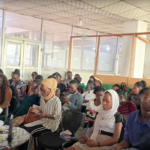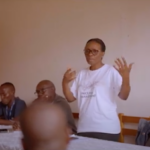
UCA, ADC partner to extend education to cooperatives
The Uganda Cooperative Alliance (UCA) Limited has signed a Memorandum of Understanding with the Agribusiness Development Center (ADC) to provide capacity building to cooperatives in the country.
The scheme places prime focus on capacity building which will involve training in among others content generation and development, joint proposal writing for successful resource mobilization, monitoring, and evaluation.
The General Secretary of Uganda Cooperative Alliance Limited, Mr. Ivan Asiimwe decried the lack of information and added that the friendship is timely and it has come at a time when some cooperatives and SACCOs are facing leadership challenges.
“To run a cooperative successfully, then education and information must flow in the system, everybody needs to be educated on the responsibilities to be able to catch up with change,” Mr. Asiimwe said.
He justified the need for constant education as it will enable cooperatives to be self-efficient, run smoothly, and social empowerment of cooperatives in Uganda.
“If members in a cooperative are well equipped with knowledge regarding the cooperative laws, policies, regulations, bylaws values and principles they will be able to contribute more effectively to cooperatives,” he said.
In a rejoinder, the Excitative Director Agribusiness Development Centre (ADC)
Ms. Josephine Mukumbya said that the partnership has come at a time when there is a need to restart the Agricultural sector since it is the back born of Uganda’s economy.
“We see promoting self-sufficiency as an effective tool to transforming the Agricultural Sector in Uganda, It is better to teach them how to fish than giving the fish for s day” Ms. Mukumbya said.
She also decried the leadership problem faced by cooperatives and saving societies.
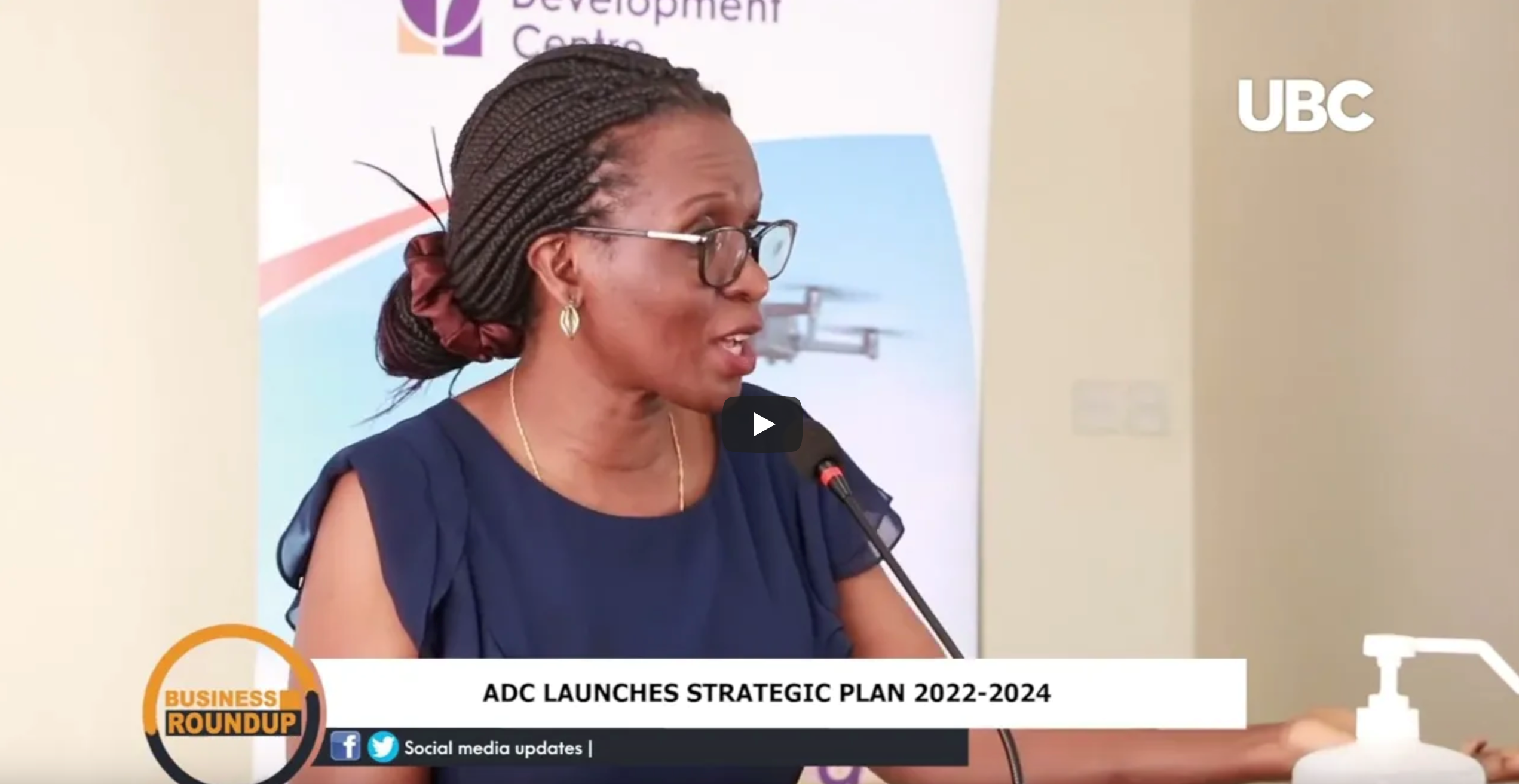
Agribusiness Development Centre launches new strategic plan
The Agribusiness Development Centre (ADC), a financial literacy training centre for Farmer Based Organisations (FBOs) has put together a 3-year work-plan that seeks to improve social entrepreneurship.The strategic plan launched on Thursday June 2, according to Ms. Josephine Mukumbya, the ADC Executive Director, will be a big boost in the area of job creation and increased income generation, while enhancing the much sought-after social economic transformation.
“We plan increase our investment in the whole agricultural value chain by supporting groups and farmers on the best financial management, agronomy, price risk management, value addition and export procedures while addressing their financial needs,” she said, emphasising that ADC’s capacity building interventions in the agricultural sector was necessary given the current high levels of unemployment.
Ms. Mukumbya was speaking to reporters after presenting the strategic plan to a group of stakeholders during an event held at dfcu head offices in Kampala.
The Agribusiness Development Centre was initiated in 2017 and is powered by the Rabo Foundation and dfcu Bank.
“If we give the knowledge in areas of record keeping, financial literacy, especially financial management in areas of agronomic practices, we should be able to see more of youth engaged in this area. We should even give them the information, guidance and incentives that actually pull them to be engaged in this sector. We are looking at having a quarter of a million in terms of beneficiaries by the end of the strategic plan and we are looking at over 1000 direct jobs right from the enterprises themselves,” Ms. Mukumbya said.
In the 2022 – 2024 strategic investment plan, ADC plans to support business in Cocoa and Coffee, Banana, cereals and oilseeds, Dairy and Livestock in areas of value addition, mixed cropping, export and market changing dynamics.
“We want to increase income and we are targeting to see a 10% increase over the next three years,” Mukumbya said.
Women and youth
“For at least 50% of the trained parties, we will want to see women and youth well included. We want to see that there’s more women in leadership, a percentage of 30% is what we’re looking at. We are currently showing baselines that are under 10%. In that regard, we want to introduce green financing. We are starting humbly but we believe this is an area that has so much potential for growth. A number of enterprises that would want to link through our business accelerator programs are identified. And in terms of self sufficiency, if 50% of the trained enterprises are self sufficient, we envisage leveraging over 10 fold and want to look at about USD 30 million in funding towards them, ” Ms. Mukumbya said, noting that the agricultural sector in Uganda can only be transformed through innovation and collaboration.
Mr. James Ssemwanga, an agronomist and a board member of ADC, said the three-year strategic plan is designed to leverage the funding from current funders to mobilize some more to scale and sustain operations for deeper impact.
“ADC’s ambition is to achieve a growth trajectory in the medium and long term by continuing to build capacity that delivers financial, social and environmental benefits to her target customer segment,” Mr. Ssemwanga said.
On his part, Mr. Mathias Katamba, the managing director and chief executive officer of dfcu Bank said: “We are responding to government call to the private sector to support agriculture. One of the ways we are doing it is through our partnership with Rado Bank and ADC aimed at transforming agricultural sector”.
Katamba said Agriculture is one of the leading employers of Ugandans and that there’s a need for collective effort to support it.
“By facilitating ADC in its operations, dfcu Bank and Rabo bank are building capacity for the farmers to access much needed financial services,” he said, adding that:
“dfcu Bank will continue to provide tailor-made products for the farmers and with the capacity building delivered through ADC, the small holder farmers will be more eligible for financing from commercial banks. They will also be better placed to increase productivity and possibly embrace commercial farming which is more profitable at household and national level,” he added.
ADC envisions promoting self-sufficiency as an effective tool to transform the agricultural sector in Uganda. This can be achieved by strengthening Farmer Based Organizations in respect of efficiency and creating economies of scale, in order to make them profitable, sustainable and bankable enterprises that are able to provide efficient and effective services to their farmers.
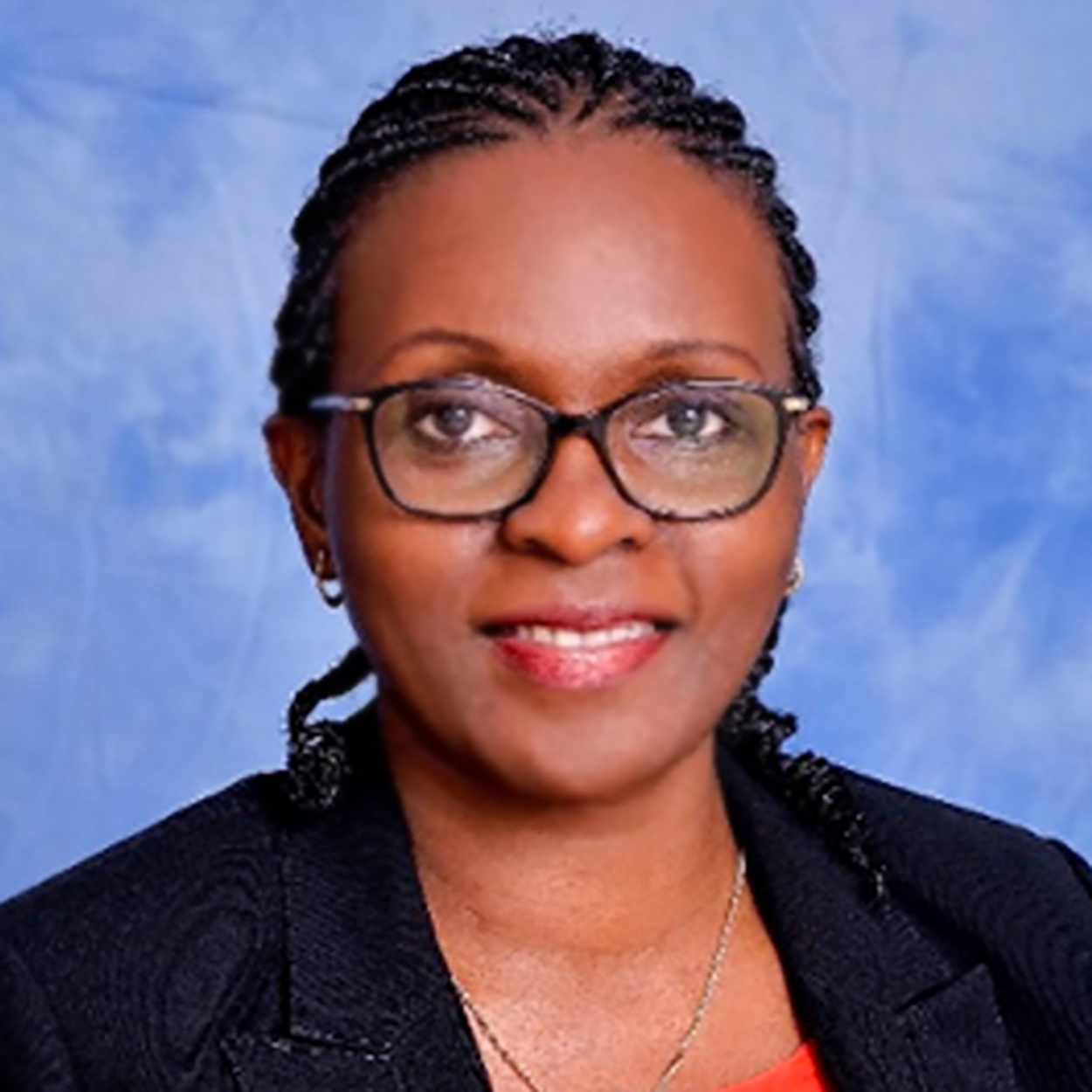
Mukumbya is the new executive director of ADC
Josephine Mukumbya has been appointed as the executive director of Agribusiness Development Centre (ADC); an entity which was founded by Rabo Foundation and dfcu Limted to specialise in capacity development of farmer based organisations through training, business mentorship and coaching, offering them the prospect of a sustainable future.
Mukumbya will be responsible for providing strategic leadership for growth of the overall organisation, its partners and the agribusinesses working with ADC.
She holds a Master’s Degree in Banking and Finance for Development from the Fondazione Giordano Dell ‘Amore in Italy and is a certified coach credentialed by the International Coach Federation as an Associate Certified Coach.
Mukumbya is an experienced professional in governance, risk management, business planning, financial portfolio management, capacity development, coaching and working cross culturally.
She has a proven track record of superior performance in five financial institutions, an International Development Agency and a multi- donor funded social enterprise in varied roles.
How trust enhances team performance
Building trust in the workplace contributes to more than just company culture it is a hard economic driver. Studies have shown that high-trust organisations are more likely to be high-performing revenue companies when compared to their low-trust counterparts.
It takes time to establish a high level of trust amongst employees, and even longer to fix a trust issue. Here is how you can help create a culture where employees feel safe, supported and respected, and in turn, respect and support you and the business.
Empower staff
Mutual trust and respect are built through reciprocity. Employees who feel trusted will trust you more. That is why it is important to empower your team by regularly giving away your authority. Delegate responsibilities to individuals and encourage a collective team decision-making process whenever possible.
Commit with actions
“Do what you say and say what you do.” Going back on your word is a sure-fire way to create doubt and break your team’s trust, fast. However, if you practice what you preach, employees will believe you are reliable and true to your word, and trust in your leadership. Building trust as a leader is done one step, one conversation and one action at a time.
Don’t make grand promises to employees in the hopes of pleasing or showing off to them as a way to build trust. Instead, focus on committing to key actions and delivering on them.
Encourage authentic communication
Even the best leaders fail. The difference between trustworthy leaders and others lies in their response to failure. If you try to hide mistakes from your team, they will feel like you do not trust them with important information or even worse, that you do not respect them enough to tell them the truth. Being authentic, vulnerable and transparent with your team helps build your credibility and humanises you. Own your mistakes and tackle difficult issues in a timely manner. Be clear on what went wrong, what could have been done better and highlight how you’ll improve next time.
Praise publicly, correct privately
An essential component of trust is a feeling of psychological safety. If your employees feel you will throw them under the bus or humiliate them in front of their peers, they will be less likely to trust you as a leader and might even lie to avoid getting caught out in the future. Commend employees on what they did well.
If a project did not go as planned and you are conducting a post-mortem, adopt a constructive approach problem-solving; “What can we do better next time?” Rather than pointing fingers at specific team members or resorting to blame. This fosters a feeling of support and trust in your team.

SOMA, an e-leaning solution for farmers
By Katia Mugenzi
The Agribusiness Business Development (ADC) powered by DFCU bank and Rabo Foundation offers Farmer Based Organizations (FBOs) trainings in good governance, financial literacy, marketing, and price risk management. ADC has trained 114 Farmer Based Organizations (FBOs) with over 8042 farmers in the East, West, Central and Northern region. Our goal is to train 375 Farmers Based organizations by 2022; with SOMA, we shall be able to reach our goal.
SOMA is an eLearning platform which was developed based on an identified learning gap; mismatch between demand of learning services and the capacity of the ADC to match this demand in the physical and high cost of carrying out one on one classroom trainings for each individual farmer. Developing the eLearning is an opportunity to bridge the gap between demand and supply of the ADC technical services at a cost-effective way. It is designed to be a self-based learning where members can access the system, register for accounts, and choose any courses they may wish to learn and gain skills on.
With SOMA we shall be able to render a unique learning experience to users through a variety of content mainly in the categories of video, graphics, audio, and text. We plan to reach over 10,000 + farmers remotely by 2022.
SOMA will give the farmers the opportunity for education without the restrictions of time or location. This is going to solve the challenge of gender imbalance since most women miss the lessons due to other home obligations. Furthermore, some learners prefer working at their own pace and prefer not to restrict their learning to a specific location, this will help the farmers save on transport to go to learning centers.
ADC’s long plan is to establish learning centers or hubs in different Farmer Based Organizations (FBOs) where farmers can be able to come take lessons in their own time of convenience. When a farmer registers for a lesson and starts learning, the system offers the learner resume capabilities that is; they can always stop and later continue from where they last stopped.
The other uniqueness of SOMA is that it offers a certificate for each course completed. The fact that most of the farmers we are training are semi illiterate; this is also a motivation for them to complete these lessons. A farmer who has completed these lessons is at an advantage of being able to do business with financial Institutions, buyers, and processors.
It goes without mention that the COVID 19 has compelled most business to include technology in their activities, farmers are the back bone of this country therefore there is need for them to adopt real quick and ADC is here to support them.
To access the platform, go to www.soma.adc.ug or email us for assistance info@adc.ug

The realities of eLearning for Agriculture in Uganda
By Priscilla Basemera
At 10 am, on the bright Wednesday morning of 29th July, Agribusiness Development Centre (ADC) at their offices on Plot 1 Mackinnon Road, launched SOMA, the first e-learning platform of its kind in Uganda with a press conference.
There are a few e-learning options available for agriculture professionals predominantly in the United States and in some parts of Asia but not in Uganda. Internet searches for e-learning platforms provide search results to student learning portals but not farmer knowledge.
SOMA, a self-paced online portal has been developed and tailored to the needs of individual farmers and farmer-based organizations. The General Manager of ADC, Emmanuel Obuko, during the launch remarked that with the low literacy levels in Uganda, adapting technology in agriculture has been difficult.
DRIVING FARMER LITERACY
Agricultural development in a changing world is not only dependent on constantly improving existing practices but also on the adoption of innovations like SOMA.
SOMA takes into consideration the different possibilities e-learning has to offer. It incorporates allowing learners an opportunity to access the available courses within their respective geographical locations at a time convenient for them at no cost. With agriculture being Uganda’s most important export sector, several factors including limited availability of finance, lack of access to timely and quality market information as well as poor agricultural practices to mention but a few are an obstacle. ADC, with a desire of training farmers in becoming self-sufficient developed SOMA to provide knowledge in areas such as Good Governance, Financial Literacy and Marketing.
WHY FARMERS?
ADC was established in 2017 by Rabo Foundation, a Netherlands based organization and Dfcu Bank in Uganda. With agriculture being the backbone of Uganda and employing 70% of Ugandans, the ADC through training aims to support farmer-based organizations in becoming self-sufficient and bankable. In a means to create professional development opportunities for agriculture practitioners, ADC creates innovative ideas that are effective and efficient for farmers in Uganda to earn a living enough to sustain their families as well.
The first steps of e-learning in agriculture have been taken in countries like Asia by the Asia – Pacific Regional Technology Centre (APRTC) in Thailand. Fully exploiting electronic media and maximizing its usefulness while creating a well-designed electronic training system for learners.
The online programs available on SOMA are designed to engage the learners and avail learning resources in the form of case studies for their benefit. Lessons are available in English, Luganda, Luo, and Runyakitara. The choice is simply yours.
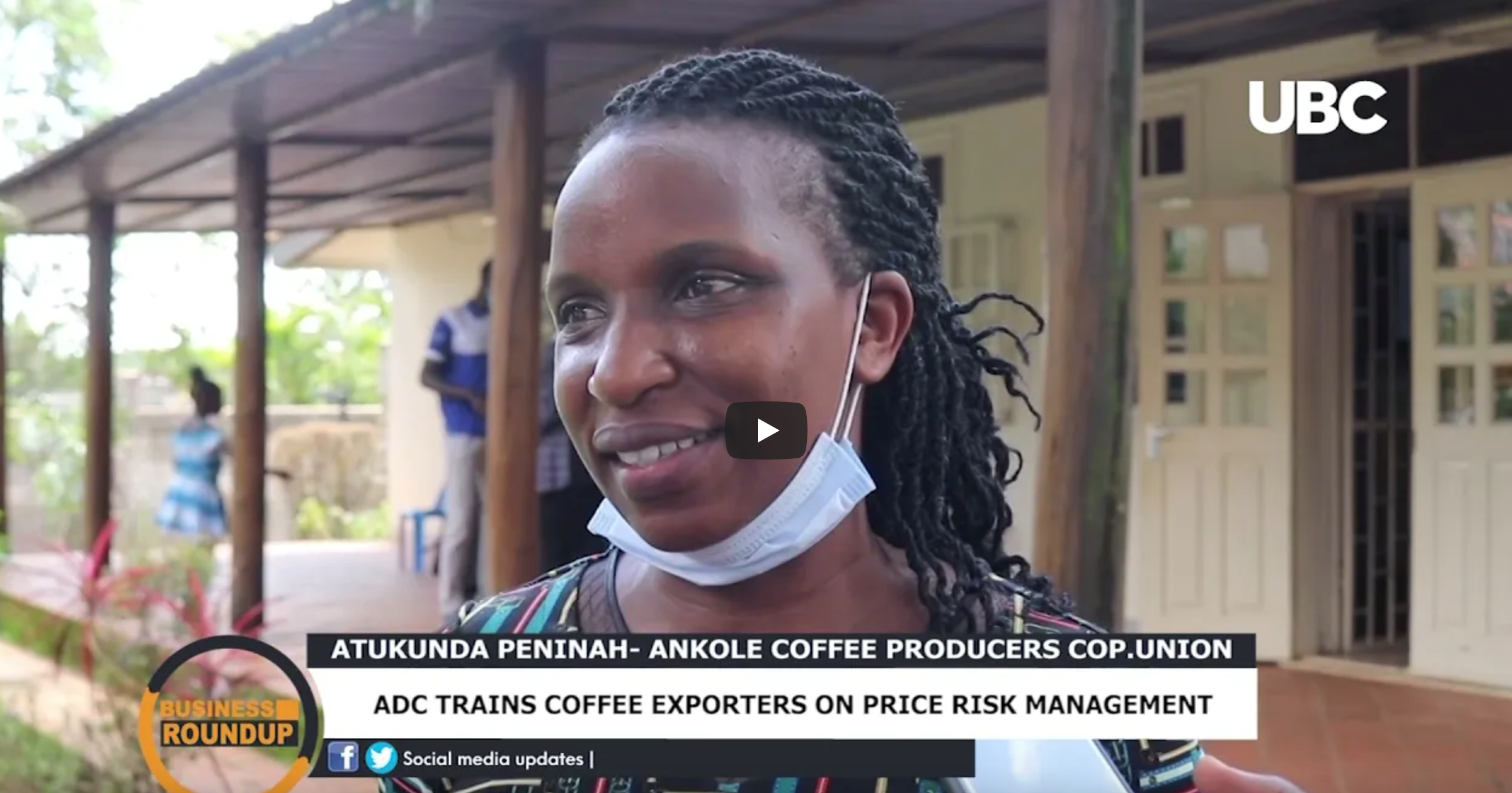
Coffee Exporters Learning to Manage Pandemic Pricing at ADC
Agribusiness Development Centre updated their Price Risk Management Training to impart Ugandan coffee farmers and exporters with more knowledge. In the video, Price Risk Management(PRM) Participants (coffee farmers) share their challenges and how they plan to overcome them using the knowledge from PRM.
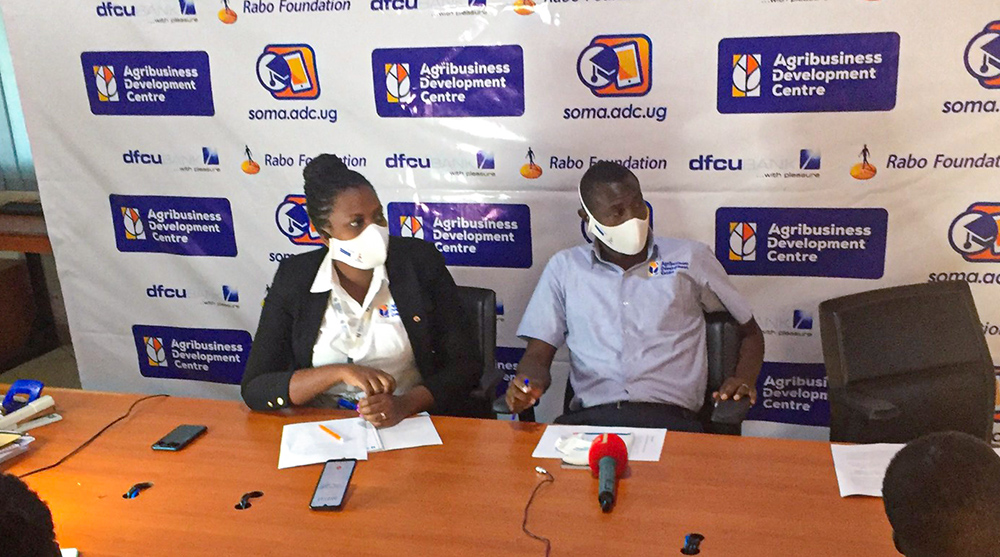
Maximization of online opportunities with SOMA Digital Campaign
By Priscilla Basemera
With the existence of the global pandemic COVID-19 and its impact on business activities, Agribusiness Development Centre (ADC) utilized the internet as a link to farmers, farmer-based organizations (FBOs) and the general public who have been spending most of their time at home and on their smartphones.
Online channels have been an ideal way of raising awareness of activities that businesses are indulging in during the ongoing pandemic. ADC through a digital campaign labeled “Register to Win” launched SOMA, an e-learning platform specific to agribusiness on its social media channels Facebook, Twitter and Instagram. SOMA can be accessed on www.soma.adc.ug.
The main aim of this campaign was to encourage people to sign-up for lessons on the SOMA platform. The 1st 10 people to register each week were hosted at the ADC offices in Kampala on Plot 1 Mackinnon Road for an interaction with the ADC Team and in appreciation of their efforts parted with a gift hamper. This campaign ran for 4 weeks bringing in a total of 40 winners.
From the 40 winners, only 14 were within Kampala during the campaign and shared their experience with SOMA upon their visit to the ADC offices. These 14 winners comprised of students, farmers, teachers and businessmen to mention but a few.
At this gathering, the ADC Team was represented by the Ag. General Manager, Emmanuel Obuko; Head of Communication and Marketing, Katia Mugenzi and Software Engineer, William Ssenyondo who developed the SOMA platform.
To catch a glimpse of what some of the winners had to say about SOMA, visit https://youtu.be/xLfY7k_1zH8

CONGRATS TO OUR WINNERS.
We thank you for registering and participating in our digital campaign.
- Richard Musamali, Kampala
- Rwabyerwa Jimmy, Fortportal
- Angus Nassasira, Kiwatule
- Stephen Ifulaimu Hiire, Kabale
- Weere Asuman,Mbale
- Musinguzi Norman, Muyenga
- Martijn Harlaar, Kampala
- Dick Midamba, Gulu
- Kwagala Phoebe, Kampala
- Dennis Chesang, Kpachorwa
- Francis Mugisha, Mbarara
- Bryan Timothy, Lyantonde
- Apio Angella Josephine, Makerere
- Ronald Babikanyisa, Kansanga
- Dan Busobozi, Mukono
- Patrick Kato, Kisasi
- Ampaire Dick, Kabale
- Julius Izza Tabi, Arua
- Katungi Cyprian Junior, Kampala
- Samuel Okello, Gulu
- Katana Daniel, Kiryandongo
- Adong Patricia, Lira
- Derrick Rubaramira, Bugolobi
- Henry Samuel Mwesigwa, Mukono
- Alexander Ruhweza, Kampala
- Nkesiga Esau, Nsambya
- Aloysius Ssendegeya, Wandegeya
- Kristina Victoria Nnanyange, Kyengera
- Mutai Evans, Bukwo
- Kisa Lawrence, Lira
- Marion Musingunzi, Nalya
- Jonathan Kyanda, Fortportal
- Daisy Anne Namono, Mukono
- Kubiriba Asaph Nahabwe, Ntungamo
- Nathan Ssebunya, Kawanda
- Sserunkuma Moses, Kawempe
- Asuman Jahazi, Gayaza Road
- Wanume Paul, Kamuli
- Stephen Magambo, Kawempe
- Rwomithio Brian, Naguru

How to apply to join SOMA
#1. Front-End Process
SOMA is a web based application that be accessed from either computers, laptops and smart mobile devices over the internet and access is by typing the application address into your browser www.soma.adc.ug
To access the application lessons, a user must be registered with an account. Upon registration, a user can access and enroll for any selected course of choice and start learning. The learning process involves steps that a user undertakes and at the end a user receives a certificate.
#2. Backend Process
The application runs on a 3-tier architecture where we have clients (browsers, server (files storage and page rendering) and a data store. This infrastructure is cloud based.
APPLICATION FEATURES
The application has the following features:
1. Registration/Sign up
A user accesses SOMA and registers for an account by clicking “START COURSE” button then click on Register tab to show the “Register for an account”. Upon successful registration, user receives both an email & SMS text with his/her account details.
2. Module/Course Enrollment
Once logged in, a user can enroll for any module/course of choice by clicking “START COURSE” as the selected course is added to his/her account.
3. Course Overview
User has access to course sessions and details and can view a summary of each session under the course.
4. Course Lesson
Users can access lesson content i.e. video, text, graphic as they learn and get to make them complete if they are done understanding the lesson.
5. Forums
Interactive messaging for users within a course to enable discussions. There is also a chat box where you can ask a question to the ADC business advisors.
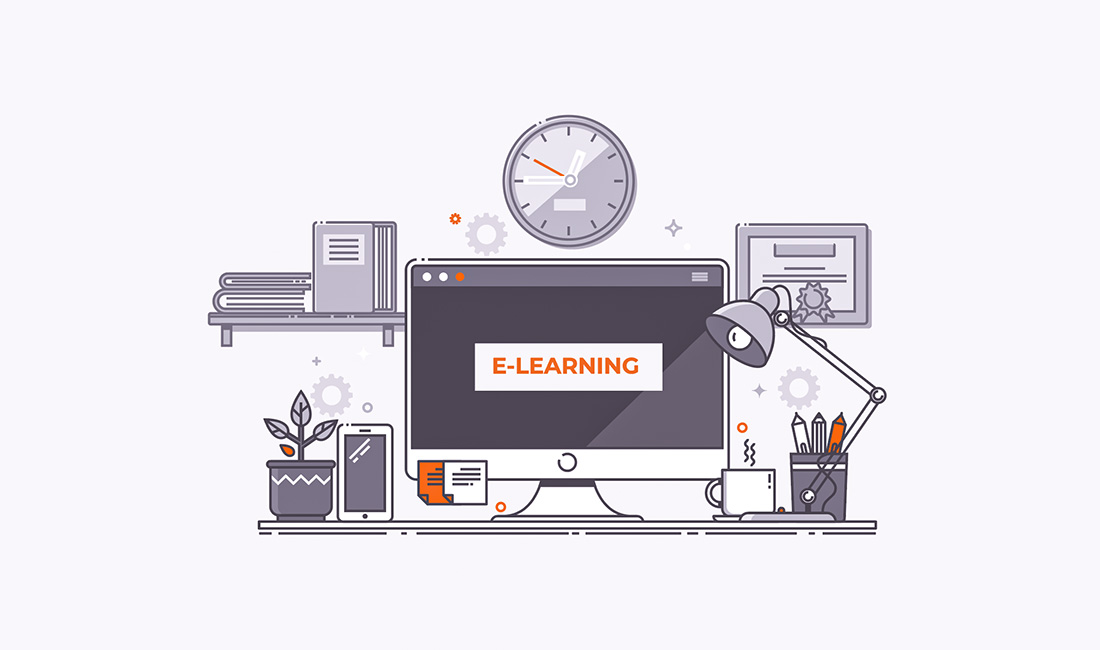
What you need to know about SOMA
SOMA supports a variety of content mainly in these categories: – video, graphics, audio, and text to render a unique learning experience to users.
Product Description
The ADC e-learning is a web based (internet based/ powered) self-learning platform that allows for users (unique compared with other eLearning platforms in simplicity), mainly individual farmers, farmer-based organization management and farmer members who belong to FBO to access learning resources (governance and leadership, financial literacy and management and marketing) virtually. The e-learning is designed on a self-based learning methodology where members can access the system, register for accounts, and choose any courses they may wish to learn and gain skills on.
Overall Goal
The main goal of the platform is to give a learning opportunity to FBOs and members the ADC cannot reach in the physical to self-learn by accessing the different resources available on the platform remotely.
Objectives
► Improve on the efficiency and effectiveness of how training services are delivered to the ADC set target (FBOs; producer cooperatives, marketing cooperatives, SACCOs engaged in SMEs)
► Foster self-paced learning at own convenience for both FBOs and individual farmers in ADC hard to reach areas at a minimal cost.
► Increase the ADC training capacity: currently trained 7,563, we want to reach over 100,000+ farmers remotely.
► Collect relevant data (feedback and FAQs) from the learners to be able to improve learner materials on the platform.

How relevant is eMata App?
By Anja De Feijter
How is the new mobile App for Dairy farmers relevant to farm technologies and management?
Farm management draws on agricultural economics for information on prices, markets, agricultural policy, and economic institutions such as leasing and credit. This means the dairy sector needs to include information support systems to Dairy management information system supports four of five propositions: reduced product shortcoming, optimal product mix, quality, and efficiencies for the farmers.
Agribusiness development Centre(ADC) together with our partners developed a solution for the dairy farmers and rolled to Bugerere dairy cooperative with over 300 members. Edward Mukimbiri, a farmer in Bugerere Dairy cooperative, delivers 20 liters per day for two times 6:00am and to his cooperative where he is a manager, when he delivers his milk.
eMata is an application tailored for dairy farmers to allow them to use the power of loans to invest in the productivity of their produce. It allows transparent recording and ensures daily milk deliveries are registered whereby the farmer automatically gets instant information about the quantity and price of the milk delivery.
eMata allows dairy cooperatives to effectively manage their administration, including their membership, farmer profiles, payment methods, deliveries and deductions. It makes calculation of farmer payments simple and fast, and supports multiple modes of payment such as cash, mobile money and bank.
When financially sustainable technologies and good management practices are used in unison, new levels of farm productivity become obtainable. The long-term goal of the app is to use the data to provide financial services to cooperatives and farmers, such as credits in terms of goods and services, loans and payments.
eMata is free to use but distributed through field partners and rolled out on cooperative basis. If you want to use eMata for your cooperative, please contact Laboremus Uganda Ltd. “Through smart use of both technology and field training, we believe that this partnership will build a foundation on which cooperatives and farmers can grow stronger, more efficient and prosperous.
The standards of living of rural farmers.
According to statistics from Uganda Dairy Development Authority, out of Uganda’s annual milk production of 2.5 billion litres, 80 per cent is sold while 20 per cent is consumed by the producing households. Middlemen take the lion’s share of proceeds from milk and this is so because farmers face challenges such as difficulty in accessing the market, production on a small scale by individual farmers and failure to access financial services to improve on production, among others.


